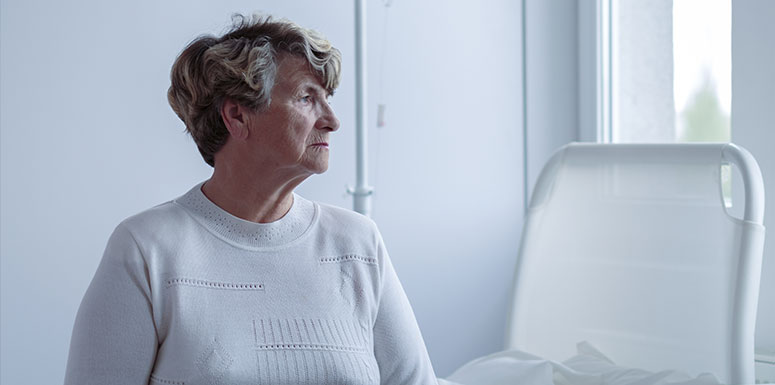
When you have a parent or loved one living in a nursing home, you must be vigilant about their care. Elderly individuals need to receive proper care from physicians, nurses, and other staff members to ensure that they retain a high quality of life. This care includes ensuring that your loved one has a clean living environment, proper hygiene, and appropriate and necessary medications and treatments. When the nursing home staff does not provide all of these necessities, your family member’s health may suffer.
Worse yet, your loved one could become not only a victim of neglect, but also abuse. Elderly individuals are at risk for sexual, physical, psychological, and financial abuse because of their decreased physical and mental functioning. This is particularly true when your loved one has trouble communicating with others.
If you notice signs that something is wrong with your elderly family member, take action immediately. Contact our Wisconsin nursing home abuse lawyers at Studinski Law, LLC to learn more about your loved one’s legal rights after enduring nursing home abuse and neglect, and how you can get them the care they deserve.
Call us today at (715) 343-2850 for a free and confidential case consultation.
Whether your loved one just moved into a nursing home for the first time or has been living in a facility for years, it is always important to remember the signs of neglect and abuse. Ten signs you can easily watch out for are:
1. Poor personal hygiene- Your loved one should receive personal care, ensuring that they are clean. If you notice that your family member is not being bathed regularly or receiving the aid they need to keep up on their hygiene, speak with the staff immediately. This issue could be quickly resolved or it may be a sign of a larger problem.
2. Weight loss- The nursing home should provide appropriate nutrition for your loved based on their needs. If you see that your loved one is losing weight, speak with the staff immediately. Your loved one may not be getting enough food, or there could be an issue with their medications that is causing them to lose weight.
3. Dehydration- Seniors do not feel thirst the same way younger individuals do, which makes it even more important that the staff monitors residents’ fluid intake. When elderly individuals do not get enough water, it can significantly impact their physical well-being and health. You should keep track of whether your loved one is typically thirsty, has dry mouth or skin, gets headaches, or constantly feels dizzy.
4. Urinary tract infections (UTIs)- If your loved one has been diagnosed with one or multiple UTIs, look into their diet, fluid intake, and hygiene. UTIs happen for a variety of reasons, but if they are recurring, it is a sign something is wrong.
5. Inexplicable bruising- If you notice bruises on your loved one’s body that seem odd or are not easily explained, you should be concerned. Bruising around the wrists could mean they are being inappropriately restrained. Bruising around the breasts or genitals could mean they are being sexually abused.
6. Being overly medicated- Your elderly loved one has the right to be free from physical and medical restraints. If you find that your loved one is consistently over-medicated when you visit to the point that it impacts their ability to function or interact with you, speak with their physician and consider getting a second opinion.
7. Falls- Elderly individuals face a significant risk of falling. However, the nursing home staff are there to help your loved one move around safely. If your loved one suffers a fall and gets hurt, look into why it occurred. If your loved one falls again, you may need to conduct a deeper investigation into their care.
8. Bed sores- Also known as pressure sores, bed sores are not a typical part of living in a nursing home. If your loved one has one or more bed sores, take action immediately. Speak with the staff. If the sores are advanced and not just beginning, your loved one may need more serious medical care at a hospital.
9. Dirty living conditions- When you visit your loved one, their room and the shared spaces should be clean. If you notice dirty sheets, dusty surfaces, spills on the floor, odd smells, or other messes, speak with the staff right away. Dirty conditions are unsanitary and could lead to the spread of illnesses.
10. Psychological issues- Your loved one’s psychological state will hint at the type of treatment they receive. If your loved one becomes less talkative over time, or if they develop concerning habits such as rocking back and forth or other forms of self-soothing, they may be the victim of physical or emotional abuse by one or more individuals on the nursing home’s staff.
If you believe your loved one has been injured at a nursing home due to neglect or abuse, contact our elder abuse and neglect attorneys at Studinski Law, LLC as soon as possible. Your loved one may have the right to bring a personal injury claim against the facility. If the neglect or abuse led to your relative’s death, you or the estate may be able to bring a wrongful death claim. Let us help you determine your best course of action.
Call us today at (715) 343-2850, or contact us online to schedule an appointment.
